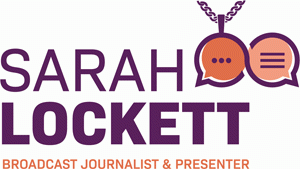Poor sound on zoom calls. My advice is: keep it brief and send the rest by email. That’s basically the point of this whole blog. But here’s a bit more detail:
If you are scheduling a zoom call, think about: why are you even having a meeting? Define the purpose of it. Is it: for everyone to hear each other’s voices and put faces to names – for example people that you’re about to work with / have only worked with remotely up until this point? Is it for everyone to feel that they’ve been heard, when feeding back on a contentious issue, for everyone to have their say? Is it so that everyone feels included?
In this case, you might WANT to have a verbal, visual, video meeting. Or would a group email do? If you do go ahead (as many other commentators have said before me) keep it short and follow up with more detailed written feedback afterwards.
As I think about this, it occurs to me that maybe, when people participate in these calls, they don’t even realise that no-one else can hear them clearly!
I recently took a zoom call where the other person told me he could only hear about one in every three syllables I spoke (it was only an audio call so he couldn’t lip read, guess or surmise). There was also a lot of background clattering: plates, people, announcements (I was at an airport). So, we devised a slightly odd solution: I muted – and he just ploughed on giving me instructions for an upcoming project. It was a one-way conversation – but that was all it needed to be. He was actually clear-as-a-bell to me, through my earbuds hermetically sealed into my ear canals!
When I asked the occasional question, he couldn’t really hear it, so I messaged him afterwards. Because it was WhatsApp Video, we didn’t have a ‘chat’ function to ask written questions – but with zoom or Teams, we could have done that, of course.
I was also recently on a Video Tele Conference call, or VTC, with several other people, in a reasonably noisy room – and some other people had dialled in from elsewhere. There were glitches in their feeds, extraneous noises from people who hadn’t muted (despite several increasingly deperate pleas for them to do so). Nobody could hear the remote people – they came and went, the odd word, the odd phrase got through, static, white noise. It was comical. It was torture. But the bosses ploughed on with it because this was the allotted time that everyone had got together, and put aside the time to do this call.
People in our room switched off mentally. Some shut their eyes, some held whispered conversations, some chatted quietly. People exchanged glanced – why are we persisting with this? I thought, if I stood up and asked – tell me one thing that has been said at this meeting? No-one would have been able to string a sentence together of WHAT HAD ACTUALLY BEEN SAID.
So,
My point is:
You can be the most fascinating person in the world but if people can’t hear you, there’s no point. Check if people can hear clearly. If they can’t, keep it short and send your content in a written form. This also applies if you’re actually in the room (ie a confernce room with bad acoustics). So that’s my opinion, there we are then.



